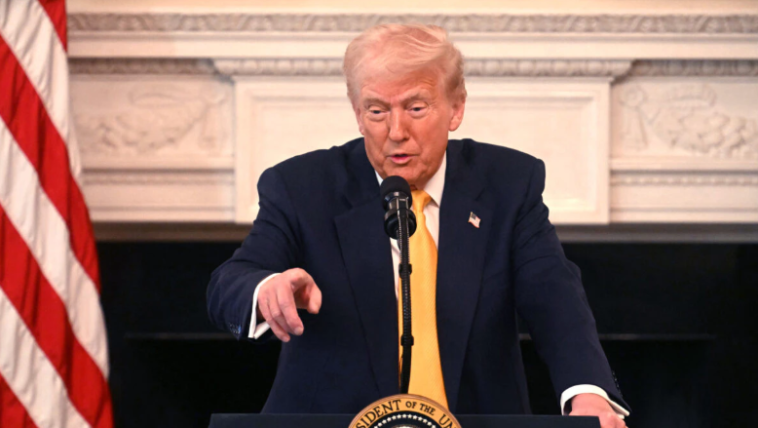President Donald Trump has criticized Ukrainian President Volodymyr Zelensky’s role in U.S.-Russia negotiations, arguing that his presence has been an obstacle to securing a peaceful resolution to the conflict. Trump’s remarks come amid renewed diplomatic efforts to bring an end to the war in Ukraine, with the United States and Russia engaging in high-level discussions in Saudi Arabia.
During a recent interview, Trump made it clear that he believes Zelensky is not helping the situation. “He makes it very hard to make deals,” Trump said, suggesting that Ukraine’s leader has been more focused on maintaining conflict rather than pursuing a path toward a negotiated peace. The comment reflects Trump’s broader critique of how the Biden administration has handled the war, allowing U.S. aid to flow to Ukraine without a clear strategy for de-escalation.
Tensions between Trump and Zelensky have been evident for some time, but they have escalated as the former president positions himself as a potential mediator in the conflict. Trump has consistently stated that if re-elected, he could broker a deal between Russia and Ukraine within 24 hours—an assertion that his opponents dismiss but one that resonates with Americans frustrated by continued U.S. involvement in the war.
The recent diplomatic meeting in Saudi Arabia, led by Secretary of State Marco Rubio, marked a significant shift in U.S. strategy, as it excluded Ukraine from the discussions. Zelensky reacted with frustration, arguing that his country should have a seat at the table when decisions about its future are being made. However, Trump and other critics believe Zelensky’s demands have complicated the negotiation process, making it harder for a diplomatic breakthrough to occur.
Beyond his criticism of Zelensky’s role in negotiations, Trump has also questioned the Ukrainian leader’s broader leadership abilities. He has suggested that Ukraine should consider holding new elections, a statement that further highlights the rift between the two leaders. Zelensky, meanwhile, has pushed back against Trump’s criticisms, accusing him of being influenced by Russian disinformation and failing to fully grasp the complexities of the situation.
Despite the ongoing war, Trump has maintained that a solution is within reach, provided that key players—particularly Zelensky—approach negotiations with pragmatism rather than political posturing. His stance underscores a broader Republican push to reassess the level of U.S. financial and military support for Ukraine, prioritizing American interests and a strategy that leads to a clear resolution rather than indefinite conflict.
As the situation unfolds, Trump’s position signals a potential shift in U.S. foreign policy should he return to the White House. With growing concerns over unchecked spending on Ukraine and the Biden administration’s lack of a coherent endgame, Trump’s critique of Zelensky’s leadership is likely to fuel further debate over America’s role in the conflict.


